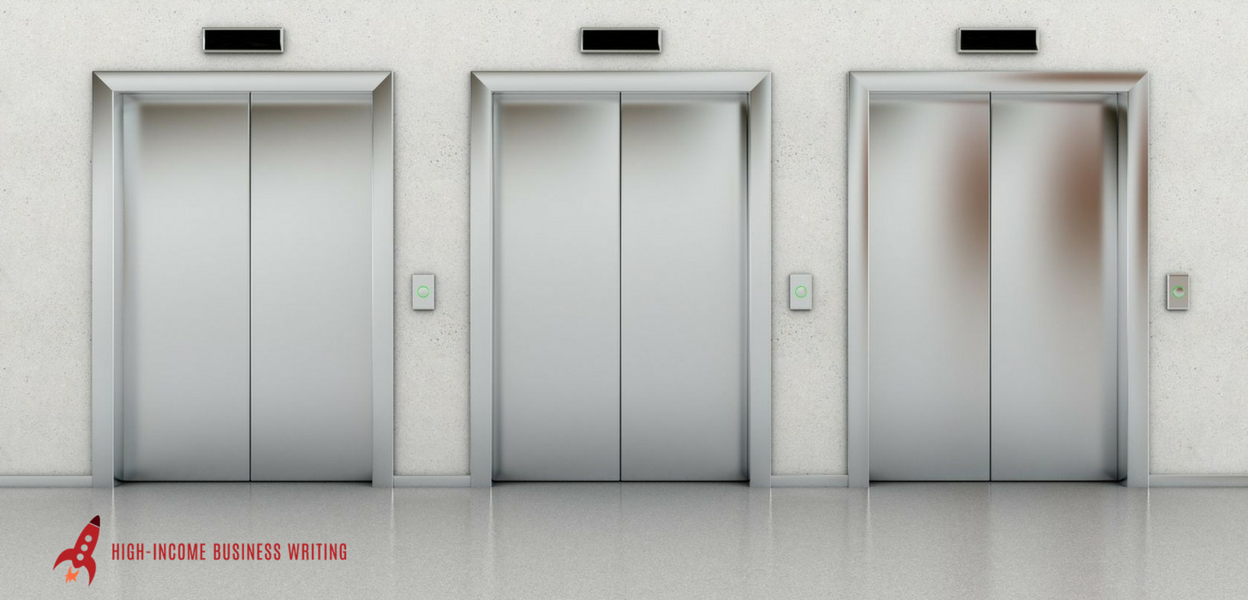Many freelance writers ask whether it’s still important to have an elevator pitch, especially in the era of websites and social media.
Twenty years ago, most business building was done through in-person networking. So you HAD to have a good elevator pitch.
But today, many freelancers conduct the bulk of their marketing through online interactions. We simply don’t get out as much as we used to.
So does that mean we can kick elevator pitches to the curb?
Not at all.
Elevator pitches will ALWAYS be an essential element of your marketing toolbox.
Even the most crowd-avoiding freelancer still bumps into potential partners, colleagues and prospects while on vacation, at the gym, at school events, at the hairdresser, at social gatherings and while walking the dog.
So you still need to have an elevator pitch.
But what does need to change is how we approach and craft these messages.
An Elevator Pitch is NOT a ‘Speech’
Firstly, you’re not supposed to deliver an actual speech! Traditionally, the idea was to deliver your message in 30 seconds or less. But frankly, if you’re talking for more than 15 seconds, you’re saying too much! (In fact, they should be called elevator statements, NOT “pitches” or “speeches”!)
Talk Like a Human
Secondly, make sure your statement is free of fluff and worthless jargon.
And please, please, please—for the love of all that’s good in this world—DON’T sound like a walking brochure!
Talk like you normally would to another person. Be conversational. Skip the flowery words and elaborate sentence structures. This alone will dramatically increase your chances of starting a meaningful conversation with the other person.
In fact, consider breaking up your elevator pitch into two or more parts. You start by delivering one or two sentences that cause the other person to respond with a follow-up question.
You then answer that question by delivering another sentence or two. The other person acknowledges your reply, and you cap it off with one more statements based on their reaction.
Elevator Pitches Aren’t Meant to Seal the Deal
Thirdly, elevator pitches are merely a conversation starter. You’re trying to see if there’s a basis for further dialogue.
You’re never going to land a new client purely on the basis of an elevator pitch. So stop trying! It only makes you sound artificial and promotional.
Think of elevator pitches as those free food samples they sometimes have at grocery stores. They’re not a meal (or at least they’re not supposed to be!). They’re just a small bite so you can determine if the product is worth considering.
If you enjoy the sample, you might ask some questions, read the label, check the price and so on. Based on all this information, you might be ready to make a buying decision.
But not before.
Elevator Pitches Are Still Necessary
Elevator pitches aren’t dead. In fact, they’ll never go away. The key is to see them for what they are—short statements that are clear, relevant, meaningful and tailored to the person you’re addressing.
And as much as we love connecting and communicating online, live person-to-person connections still happen.
So when you have the opportunity to connect with someone new, have your elevator pitch prepped and ready to go.






